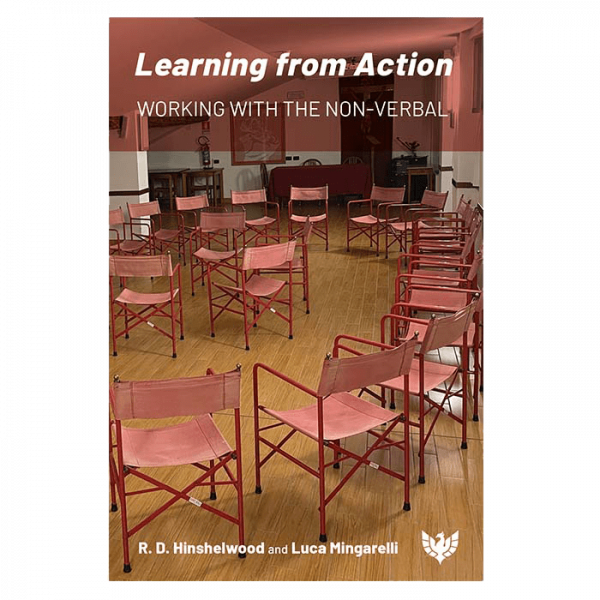About the authors

Kevin Volkan, EdD, PhD, MPH is a founding faculty member and Professor of Psychology at California State University Channel Islands, where he researches and teaches courses on psychopathology and atypical behaviors, personality theory, as well as Nazi Germany, and Eastern philosophy. Dr. Volkan also currently serves on the Graduate Medical Education faculty for the Community Memorial Hospital System in Ventura CA, where he teaches and conducts research with medical residents, and as an adjunct faculty member for California Lutheran University’s clinical psychology doctorate program. He holds doctorates in clinical and quantitative psychology, is a graduate of the Harvard School of Public Health, and a former Harvard Medical School faculty member and administrator. Dr. Volkan is considered to be an expert on extreme psychopathologies and has testified before the United States Senate on pathological and dangerous fetishes. He has made numerous appearances on television, radio, and podcasts as a psychological expert.
Dr. Volkan’s clinical training and experience is in psychoanalytic psychotherapy, though he also has experience using a wide variety of other modalities in clinical practice. He has practised clinical psychology as a staff psychologist in a state hospital and in private practice. Dr. Volkan’s clients included a diverse population of people representing a wide variety of socioeconomic strata and psychological distress. He has worked with people suffering from drug addiction, neuroses, and personality disorders as well individuals suffering from autism, organic brain injury, and schizophrenia. Dr. Volkan was awarded the Sustained Superior Accomplishment Award from the State of California for his clinical work. His current practice is centered around psychodynamic embodied dreamwork.
Dr. Volkan is the author of Dancing Among the Maenads: The Psychology of Compulsive Drug Use, which is one of the few psychoanalytic works examining drug addiction. He has also published a number of papers on psychopathology as well as on psychoanalysis and culture. His current publications include works on delusional misidentification syndromes, hoarding, narcissism, and demonic possession.

Vamık Volkan, MD, DFLAPA, received his medical education at the School of Medicine, University of Ankara, Turkey. He is an emeritus professor of psychiatry at the University of Virginia, Charlottesville and an emeritus training and supervising analyst at the Washington Psychoanalytic Institute, Washington, DC. In 1987, Dr Volkan established the Center for the Study of Mind and Human Interaction (CSMHI) at the School of Medicine, University of Virginia. CSMHI applied a growing theoretical and field-proven base of knowledge to issues such as ethnic tension, racism, large-group identity, terrorism, societal trauma, immigration, mourning, transgenerational transmissions, leader–follower relationships, and other aspects of national and international conflict. A year after his 2002 retirement, Dr Volkan became the Senior Erik Erikson Scholar at the Erikson Institute of the Austen Riggs Center, Stockbridge, Massachusetts and he spent three to six months there each year for ten years.
In 2006, he was Fulbright/Sigmund Freud-Privatstiftung Visiting Scholar of Psychoanalysis in Vienna, Austria. Dr Volkan holds honorary doctorate degrees from Kuopio University (now called the University of Eastern Finland), Finland; from Ankara University, Turkey; and the Eastern European Psychoanalytic Institute, Russia. He was a former president of the Turkish-American Neuropsychiatric Society, the International Society of Political Psychology, the Virginia Psychoanalytic Society, and the American College of Psychoanalysts. Among many the awards he received are the Nevitt Sanford Award, Elise M. Hayman Award, L. Bryce Boyer Award, Margaret Mahler Literature Prize, Hans H. Strupp Award, the American College of Psychoanalysts’ Distinguished Officer Award for 2014, and the Mary S. Sigourney Award for 2015. He received the Sigmund Freud Award given by the city of Vienna, Austria in collaboration with the World Council of Psychotherapy. He also was honoured on several occasions by being nominated for the Nobel Peace Prize with letters of support from twenty-seven countries. Dr Volkan is the author, co-author, editor, or co-editor of more than fifty psychoanalytic and psychopolitical books, including Enemies on the Couch: A Psychopolitical Journey through War and Peace. Currently Dr Volkan is the president emeritus of the International Dialogue Initiative (IDI), which he established in 2007. He continues to lecture nationally and internationally.







Jane G. Tillman, PhD ABPP, Evelyn Stefansson Nef Director, Erikson Institute for Education and Research, Austen Riggs Center, Stockbridge, Massachusetts. –
‘Kevin Volkan, PhD and Vamık Volkan, MD bring their scholarly and clinical knowledge to the project of understanding the history, science, and treatment of schizophrenia. In this highly readable and accessible book they provide a comprehensive review of the scientific literature on schizophrenia and how the illness is affected by culture. Volkan and Volkan review, critique, and update psychoanalytic formulations of schizophrenia, showing how early Freudian, ego, and object relations psychoanalytic theories have evolved into modern psychoanalysis and psychoanalytic psychotherapy. They advocate for the place of modern psychoanalytic psychotherapy in the treatment of schizophrenia, where symptoms and suffering can be understood in the context of the inner and the outer world of the patient, and may take place in conjunction with other treatment modalities. Integrative approaches to understanding and treating schizophrenia maximize the possibility of recovery and this book advocates for a broad and thoughtful approach to treatment.’
Jerome S Blackman, MD, FIPA, Professor of Psychiatry, Eastern Virginia Medical School, Norfolk –
‘The description of schizophrenia has a history – if you want to know this history, you will find it in this magnificent book. The causes of schizophrenia have been debated, from infectious, to genetic, to object relations disturbance in early childhood – if you are interested in all those debates, look no further. The treatments of schizophrenia have a long history, too, from surgeries to neuroleptics – they are skillfully and engagingly discussed in a form anyone can read. Finally, if you want to see the principles for treating, as the authors note, some schizophrenics with psychoanalytic approaches, these are described in fascinating and persuasive detail. And, by the way, if you want some evidence-based references to bolster the authors’ representations, there are 42 pages of bibliography. Not just a reference book, this is a stunning work of readable, accessible, and fascinating scholarship.’
Emmanuelle Smith, psychodynamic psychotherapist in the NHS and private practice, ‘Therapy Today’ October 2022 –
‘[C]ompelling and progressive, with the authors striking exactly the right balance between theory and practice. Key psychoanalytic concepts and thinkers are invoked to help make sense of schizophrenia. There is something much more human here – a search for meaning that can sometimes be lacking in strictly medical or pharmacological models. […] Vamik Volkan’s clinical vignettes, used to illustrate the process, are a pleasure and inspiration to read. […] by bringing together psychiatry, psychology, psychoanalysis and culture, this book is a convincing manifesto for a multidisciplinary approach to treating schizophrenia.’